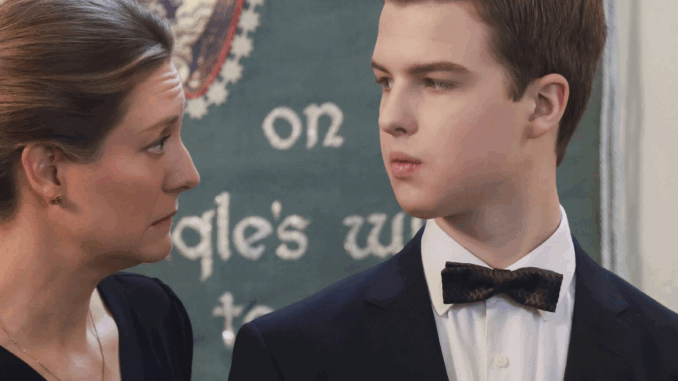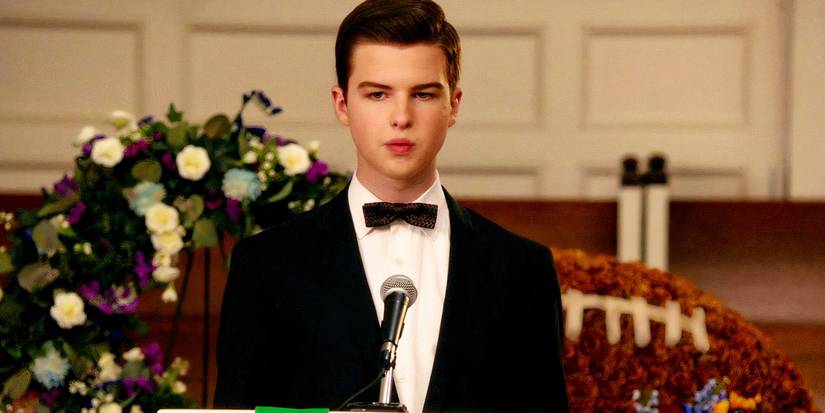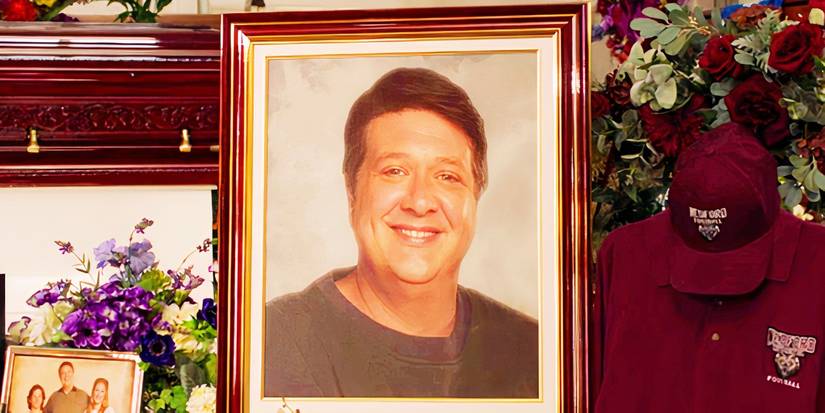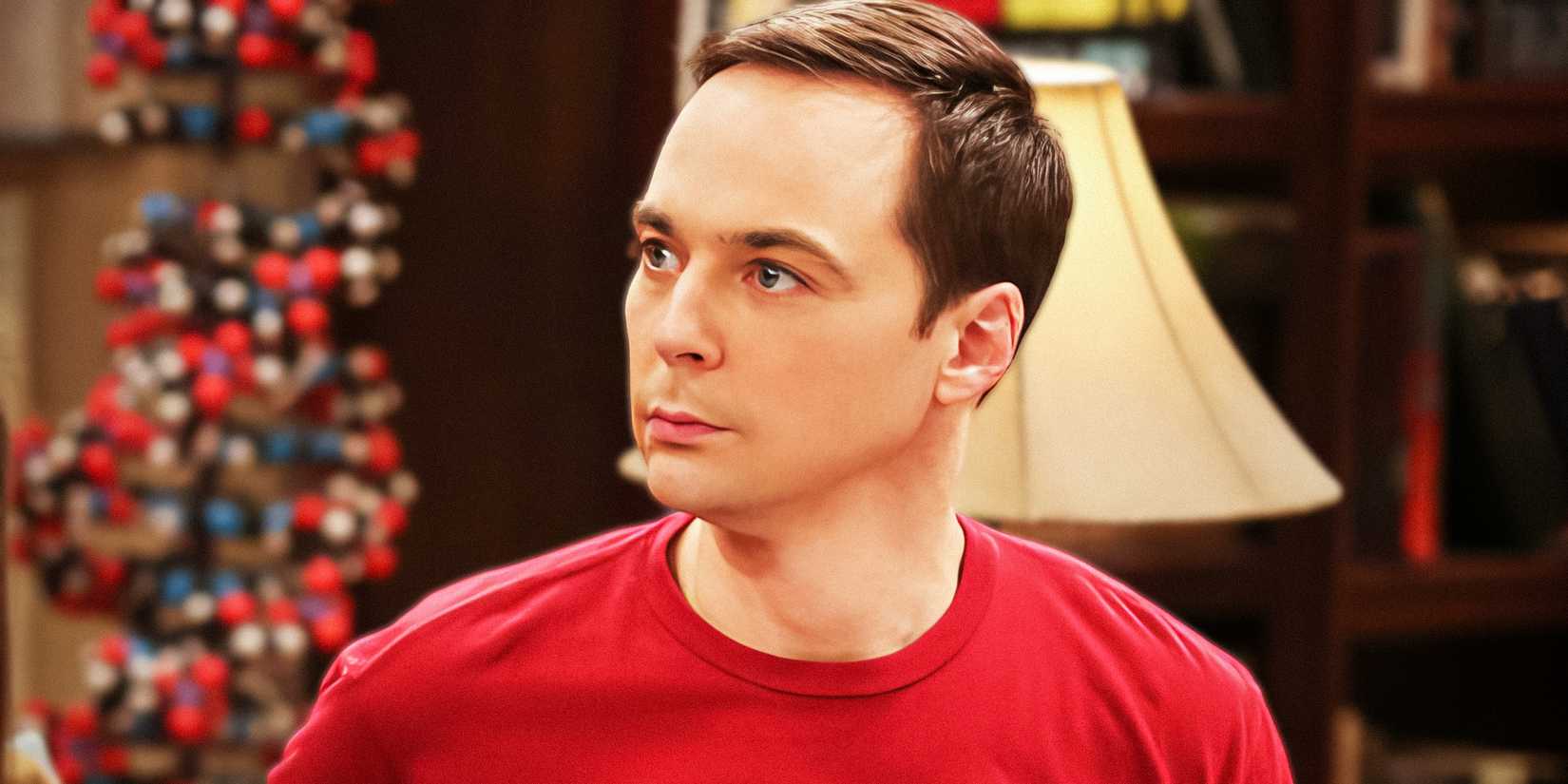
However, the show was far from a carbon copy of its predecessor. In fact, Young Sheldon changed the format of The Big Bang Theory just as much as Young Sheldon’s spinoff, Georgie & Mandy’s First Marriage, changed its style and tone. Like Friends or How I Met Your Mother, The Big Bang Theory was a traditional multi-camera hangout show.
The series featured a laugh track and conventional sitcom staging, borrowed from creator Chuck Lorre’s work on earlier hits like Dharma and Greg, Two and a Half Men, and The Conners. In contrast, Young Sheldon was a single-camera family sitcom with a narrator, no laugh track, and a period setting.
Setting the series in the past was an approach borrowed from The Wonder Years and The Goldbergs, and this gave the series a sense of nostalgia missing from The Big Bang Theory. The premise, which followed a precocious child prodigy’s misadventures growing up in a small town with his dysfunctional family, was more reminiscent of Malcolm in the Middle than The Big Bang Theory.
Young Sheldon Season 7 Episode 13 Has The Show’s Highest IMDb Rating
The Penultimate Episode Earned A Series-High 9.4 Rating
This was epitomized in the show’s penultimate outing, season 7, episode 13, “Funeral.” “Funeral” followed the Cooper family’s preparations for George Sr.’s funeral after his sudden death in the preceding episode, but the episode primarily focuses on Sheldon’s unique grief over losing his father unexpectedly.
This masterpiece of a sitcom episode did something quietly extraordinary that elevated its reception among critics and fans alike, earning the show’s highest ever IMDb episode rating of 9.4.
In the process, this masterpiece of a sitcom episode did something quietly extraordinary that elevated its reception among critics and fans alike, earning the show’s highest-ever IMDb episode rating of 9.4. Young Sheldon’s finale brought back the show’s original premise, focusing on Sheldon over the rest of his family, who had come to dominate season 7’s events.
However, “Funeral” was uniquely singular in its focus on Sheldon. The episode took place partially inside Sheldon’s mind, as he obsessively repeated his final conversation with his father and attempted to imagine an alternative version of their last exchange that would have felt more fitting.
“Funeral” Brought Viewers Inside Sheldon’s Mind
Sheldon Spent George Sr.’s Funeral Obsessively Revisiting Their Final Conversation
The spinoff was always deliberately ambiguous about Sheldon’s condition, with neither Young Sheldon nor The Big Bang Theory ever confirming whether the character is neurodivergent. Regardless of this specific character detail, Sheldon’s attempts to relitigate his last words with George Sr. will be heartbreakingly familiar to viewers who suffer from racing thoughts.
| The Big Bang Theory Franchise Project | Release Years | # of Seasons |
|---|---|---|
| The Big Bang Theory | 2007-2019 | 12 |
| Young Sheldon | 2017-2024 | 7 |
| Georgie & Mandy’s First Marriage | 2024-Present | 1 |
| Stuart Fails To Save The Universe | N/A | N/A |
To my surprise, “Funeral” was legitimately a very sad episode, and a significant step up from the show’s usual outings. While Young Sheldon’s Missy storyline was a letdown in season 7, this plot proved that the spinoff understood its main character on a fundamental level and humanized him further than The Big Bang Theory ever could.
Sheldon occasionally showed his softer side, but the original series couldn’t get inside the character’s mind. Limited by a traditional sitcom format that kept its distance from the show’s heroes, The Big Bang Theory never offered viewers an insight like “Funeral.”
In most episodes of The Big Bang Theory, Sheldon’s antics seem comically obtuse, obnoxiously pedantic, or otherwise insufferable. This is precisely what makes the character funny and lovable, as only truly great episodes of The Big Bang Theory exposed the vulnerability beneath his emotionless exterior.
“Funeral” Let Young Sheldon Do Something The Big Bang Theory Never Could
The Show’s First-Person Single Camera Style Made Sheldon’s Story More Immersive
In contrast, “Funeral” is a masterclass in using the single-camera sitcom style to its full advantage, as Young Sheldon’s penultimate episode humanizes its title character more than any earlier story from either series. Viewers are trapped in the mind of a child understanding grief for the first time, something The Big Bang Theory’s multi-camera style could never have facilitated.
The Big Bang Theory revealed that Sheldon processed the world differently from other people early on. However, “Funeral” allowed its spinoff to place the audience in Sheldon’s shoes and see the world the way that he sees it. In the process, The Big Bang Theory’s spinoff provided Young Sheldon with the show’s one true masterpiece.


